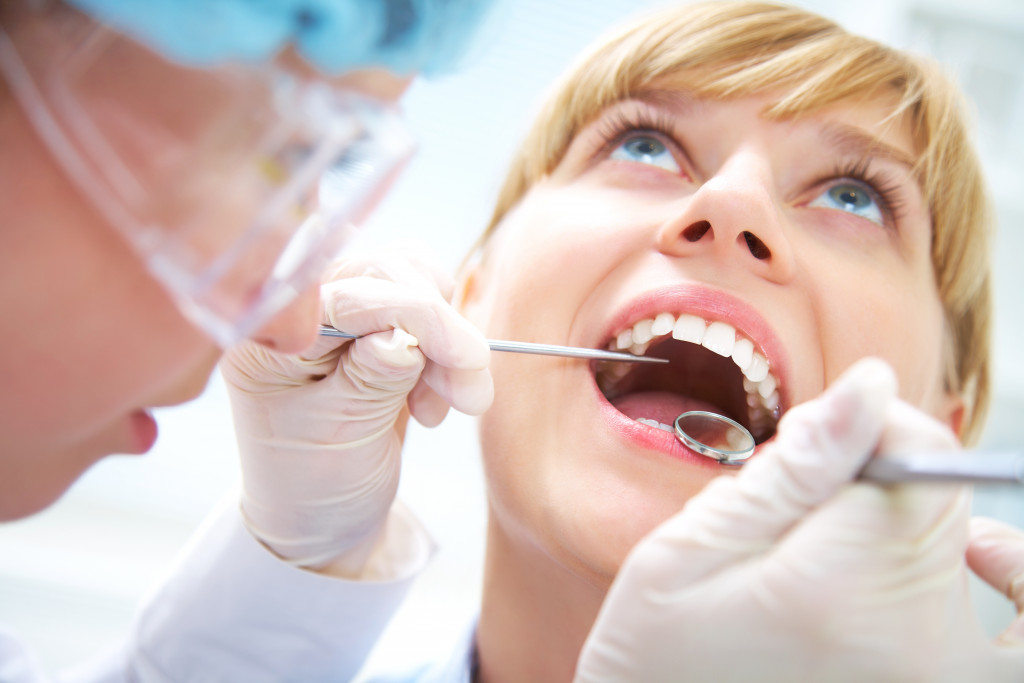According to the American Dental Association, women are more likely than men to experience certain oral health problems. If you’re a woman, you’re probably no stranger to the various ways that your hormones can wreak havoc on your body. From acne and weight gain to mood swings and fatigue, it seems like there’s no end to the list of symptoms that can be chalked up to “hormone imbalance.” But did you know that your hormones can also affect your oral health? It’s true—and if you’ve been dealing with any of the following problems, there’s a good chance that your hormones are to blame.
Cavities
Cavities are among the most common oral health problems, especially in women. Cavities are caused by bacteria that form on your teeth and gums. When this happens, it produces acid that eats away at your tooth enamel. This can cause a lot of pain and sensitivity.
Sadly, if your cavities are left untreated, your dentist may recommend dental extraction to remove the tooth. This is important as, in some cases, removing the decaying tooth can prevent the infection from spreading to other parts of your mouth or body.
To avoid cavities, make sure you’re brushing and flossing regularly. Make sure that you’re using toothpaste that contains fluoride, as this will help to strengthen your tooth enamel and make it more resistant to cavities.
Tooth Sensitivity
Have you noticed that your teeth seem more sensitive than usual? Are hot drinks making you wince? Sweet foods sending shockwaves through your teeth? If so, again, it could be due to changing hormone levels. Pregnant women, in particular, tend to experience tooth sensitivity due to increased gum blood flow (caused by surging hormone levels). The good news is that this type of sensitivity is usually temporary and will go away after pregnancy. However, if you find that your teeth are still sensitive months after giving birth, it’s worth mentioning it to your dentist. It can be a sign of something more serious, like gum disease.
Dry Mouth
Suppose you’ve been dealing with a persistently dry mouth. In that case, it could be a side effect of certain medications or medical conditions—but it could also be due to hormonal changes. During menopause, declining estrogen levels can lead to changes in the composition of saliva, which can, in turn, cause dry mouth. Symptoms of dry mouth often include a burning sensation, difficulty swallowing, and cracked lips.
A dry mouth can be more than just an annoyance—it can also lead to other oral health problems, such as cavities and gum disease. This is because saliva helps to keep your mouth clean by washing away food particles and bacteria. If you don’t have enough saliva, this cleansing action can’t occur, and bacteria can build up, leading to cavities and gum disease.
To combat dry mouth, ensure you’re drinking plenty of water throughout the day. Chewing sugar-free gum or sucking on sugar-free hard candy can also help to stimulate saliva production.
Gum Disease
Gum disease is another common oral health problem, especially among women. Gum disease occurs when the gums become inflamed or infected. This can happen because of plaque buildup or other factors like hormones or diabetes. Gum disease can lead to tooth loss, so it’s important to be aware of the symptoms, which include bleeding gums, red or swollen gums, and pain when chewing. If you think you may have gum disease, it’s important to see your dentist immediately so they can diagnose and treat the problem.
Tooth Decay

Tooth decay is caused by a combination of things like poor oral hygiene, eating sugary foods, and not getting enough fluoride. This condition can lead to cavities, which can be very painful. Tooth decay is more common in women than men, and it’s especially common during pregnancy. This is because pregnancy can make the gums more susceptible to plaque and bacteria.
Some of the common signs of decaying teeth are black spots on your teeth, pain when you eat or drink, and sensitivity to hot and cold temperatures. If you think you may have tooth decay, it’s important to see your dentist right away, so they can diagnose and treat the problem.
It’s pretty easy to avoid tooth decay. You just need to make sure you’re brushing and flossing regularly and using toothpaste that contains fluoride.
The bottom line
There you have it! These are some of the most common oral health problems women face. Remember to brush and floss regularly, see your dentist for regular checkups and cleanings, and eat a balanced diet. By taking these steps, you can avoid these problems in the future!



